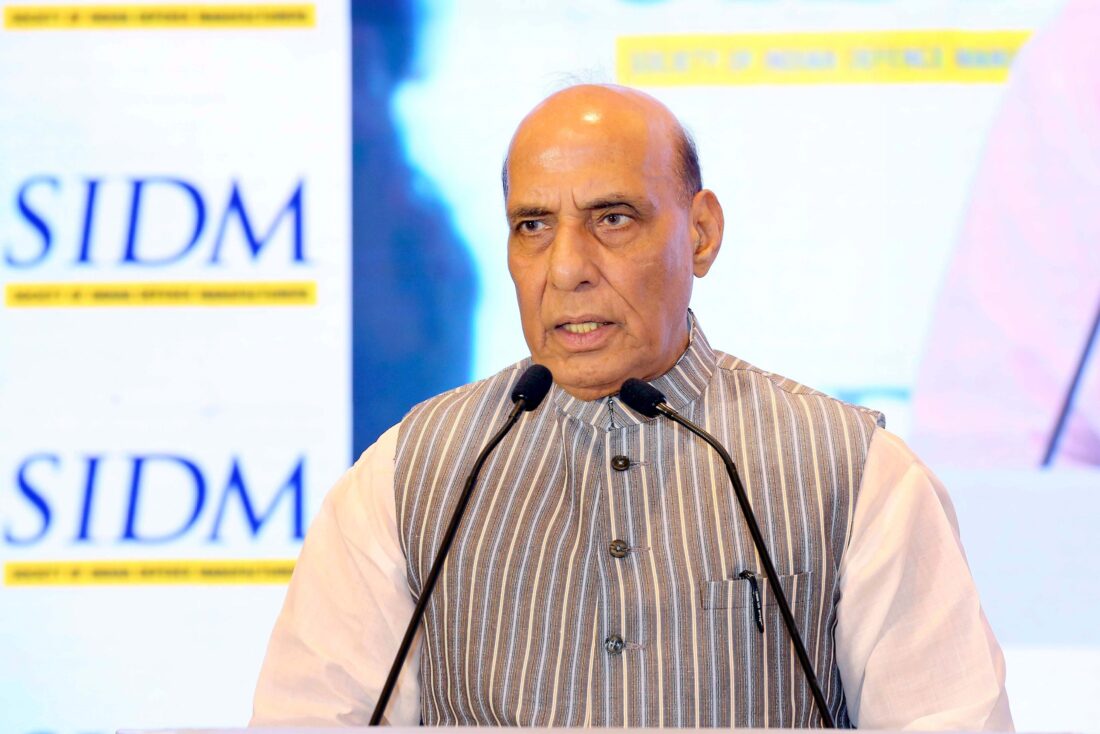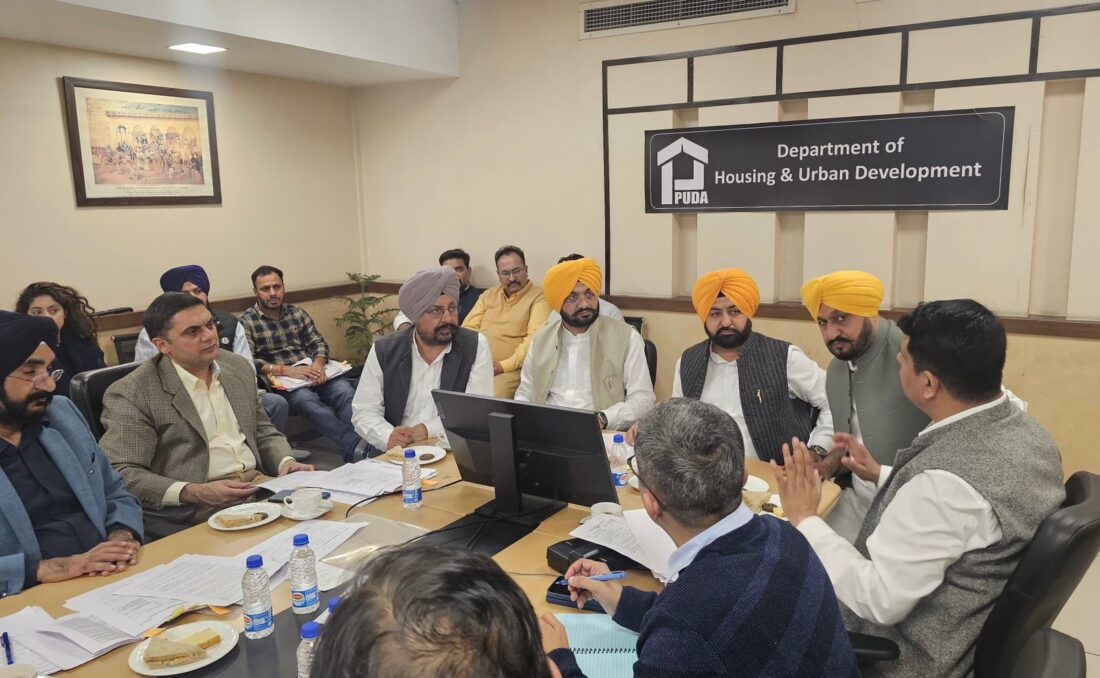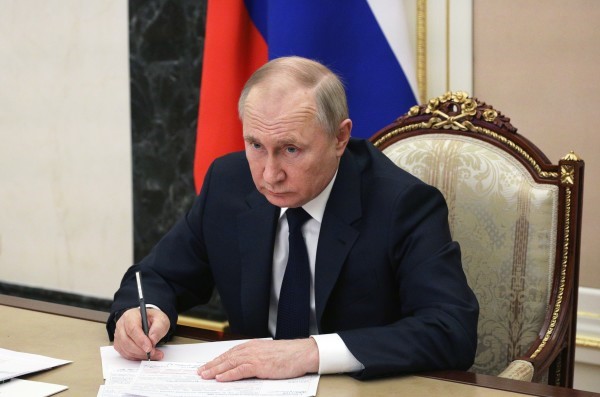North News
New Delhi, October 4
Defence Minister Rajnath Singh on Friday emphasized the importance of strengthening India’s defence industrial base in light of the ongoing Russia-Ukraine conflict. He highlighted the government’s commitment to bolstering the country’s defence industry and realising Prime Minister Narendra Modi’s vision of transforming India into a global manufacturing hub.
Addressing the seventh annual session of the Society of Indian Defence Manufacturers (SIDM) in New Delhi, Rajnath Singh said the government will continue its efforts to build a robust, innovative, and self-reliant defence ecosystem in its third consecutive term. “The Russia-Ukraine conflict serves as a reminder of the critical need for a strong defence industrial base, which can be developed and expanded with time,” the Defence Minister said.
Rajnath Singh outlined several measures undertaken to achieve self-reliance in the defence sector, including the establishment of defence industrial corridors in Uttar Pradesh and Tamil Nadu, the release of positive indigenisation lists (PILs), the corporatisation of the Ordnance Factory Board, and the support provided to private industries by the Defence Research and Development Organisation (DRDO). He also mentioned the Defence Acquisition Procedure 2020 as a vital step in this direction.
On the 10 PILs notified so far, covering over 5,500 items, Rajnath Singh explained that the goal is to equip the armed forces with platforms and equipment manufactured domestically. “These lists are dynamic, not static. I urge the industry to achieve complete self-reliance for these items within the stipulated time and continue shortening the list as we move forward,” he added. He also encouraged the industry to assess and identify additional products that can be indigenized, considering the rapid technological changes occurring in global defence.
The Defence Minister praised the private sector for its significant role in boosting defence exports, which reached a record Rs 21,000 crore in FY 2023-24. He noted the government’s creation of a business-friendly environment to ease operations and set a target of making India’s defence industry export-oriented. He called on the industry to focus on narrowing the gap between defence exports and imports, emphasizing the need for a target-oriented approach.
The Defence Minister shared his optimism over the record-high annual defence production of Rs 1.27 lakh crore in FY 2023-24. While the Defence Public Sector Undertakings (DPSUs) contributed Rs 1 lakh crore, private companies added Rs 27,000 crore. Singh called for greater private sector involvement, setting a goal for private industries to contribute at least half of India’s total defence production. He assured the government’s full support in achieving this target.
The Defence Minister underlined the government’s focus on encouraging foreign companies and Original Equipment Manufacturers (OEMs) to invest in India or establish joint ventures with private industries. He urged SIDM to draft a roadmap for firm-to-firm collaborations, asserting that the Indian industry has the potential to bring advanced technologies and processes to the country.
Recognizing the vital role of small and medium enterprises (SMEs) and start-ups in the defence sector, Rajnath Singh acknowledged the challenges they face in ease of doing business. He urged SIDM to collaborate with the government to address ground-level issues and ensure these enterprises can play a larger role in defence manufacturing. “SIDM can help in identifying practical challenges faced by start-ups and SMEs so that we can address them,” Singh said.
Rajnath Singh called on the defence industry to increase investments in advanced technologies such as artificial intelligence (AI), cyber defence, and autonomous systems. “India’s defence industry must keep pace with global trends and focus on high-end technologies like AI and autonomous systems, which will define the future of warfare,” he stressed. Singh assured the industry that the government is ready to provide full support for these initiatives.
















